The Boy Genius
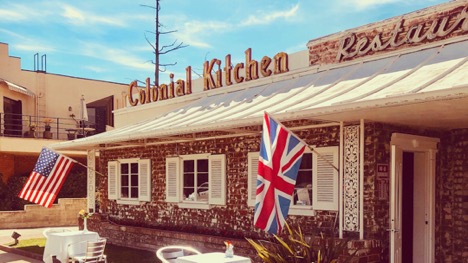 Fifteen years ago Cindy and I were having breakfast at The Colonial Kitchen in San Marino when a short bone-thin older man with curly brown hair that fell to his shoulders and a pasty face stretched tight by too much plastic surgery led a stunningly beautiful young Asian woman wearing skin-tight black leather pants and high-heeled boots across the dining room to a booth directly across from us. He sat down and scooted over against the wall. She sat beside him, put her arm around him, nibbled his ear, and rubbed his sunken chest while he ignored her and looked over the menu.
Fifteen years ago Cindy and I were having breakfast at The Colonial Kitchen in San Marino when a short bone-thin older man with curly brown hair that fell to his shoulders and a pasty face stretched tight by too much plastic surgery led a stunningly beautiful young Asian woman wearing skin-tight black leather pants and high-heeled boots across the dining room to a booth directly across from us. He sat down and scooted over against the wall. She sat beside him, put her arm around him, nibbled his ear, and rubbed his sunken chest while he ignored her and looked over the menu.
“Phil Spector just walked in,” I said to Cindy.
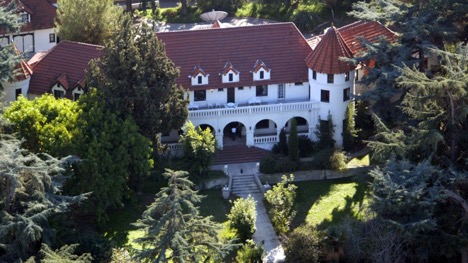
Cindy’s pretty hazel eyes widened. She turned to look and we both stared at him.
When you live in LA, you see a lot of celebrities. We stood on the sidewalk with Jack Palance one night in Hancock Park and watched a duplex burn to the ground. Lee Marvin shopped beside us in a department store on Wilshire Boulevard. Elton John sat three tables away at L’Orangerie. The novelty wears off after a while, and you learn to respect their privacy. You take a quick look and move on. You never stare.
That sighting of Phil Spector was different, though. He was a globally famous multi-millionaire music producer facing a murder trial. The indictment alleged he shot a young woman late at night at his home, The Pyrenees Castle, a sprawling mansion located on a hill just a stone’s throw from The Colonial Kitchen, where we sat that morning.
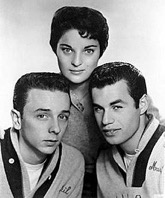
The news reports said his behavior became unpredictable and violent decades earlier when his career began to falter. His first song was a mega-hit way back in 1958 when he was only 19. He wrote, arranged, played guitar, sang, and produced To Know Him is to Love Him with the group, The Teddy Bears. It soared to number one on the charts and remained a top hit for six months, selling over two and a half million copies. The Teddy Bears broke up. Spector moved behind the scenes as a producer and released a dazzling string of hits in the early 1960’s. Dream Lover, Da Doo Ron Ron, Then He Kissed Me, Be My Baby, I Love the Way You Love Me. By the time he was 26, he had produced more than two dozen songs that made the Billboard Top 40, most of them characterized by his signature “wall of sound,” legions of musical instruments and backup singers that came together in a dynamic sonic mass, probably best exemplified by The Righteous Brothers’ You’ve Lost That Lovin’ Feelin’.
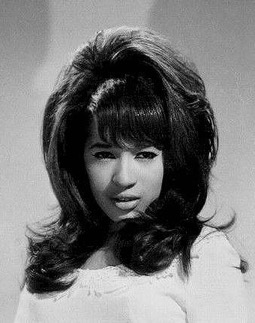
But in the late 1960’s his red-hot career suddenly cooled off, and his personal life fell apart. His first marriage blew up. His second wife, Veronica Bennett, lead singer of The Ronettes, said he imprisoned her in The Pyrenees Castle and abused her. After she divorced him in 1974, he hit the bottle hard and developed a fondness for firearms. He spectacularly crashed his car, flying through the windshield and almost dying from the head injuries. Even amidst the turmoil, he managed to produce several albums in the 1970’s with John Lennon and George Harrison, but his professional behavior became erratic and volatile. He famously shot up the studio ceiling while working on a Lennon album and put a loaded revolver to singer Leonard Cohen’s head during a taping.
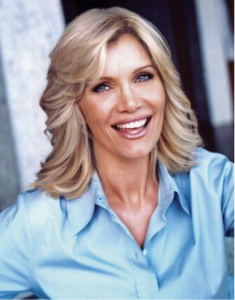
In the 1980’s and 90’s, he produced almost no music as his life tumbled steadily downhill. On the night of February 2, 2003, about a month before Cindy and I saw him at The Colonial Kitchen, he hit rock bottom. He drank his way through Beverly Hills and Hollywood, finishing up at the House of Blues on Sunset Strip where he talked Lana Clarkson, a B‑movie actress less than half his age, into going back to the Castle with him. Spector’s chauffeur, Adriano de Souza, drove them there and watched them go inside the house. Sitting in the driveway, he heard a gunshot, and Spector came out the front door brandishing a revolver. “I think I killed somebody,” he said. De Souza found Clarkson’s corpse slumped in a chair, a gunshot wound to the mouth, blood splattered on the chair and wall, bits of her teeth on the floor. When the police came, they had to taser Spector to disarm him.
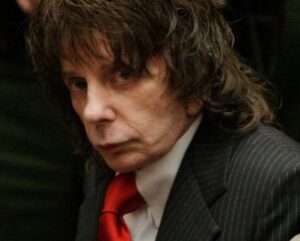 The LA District Attorney charged him with second-degree murder, and he was out of jail on a one million dollar bail bond when Cindy and I saw him that morning in The Colonial Kitchen.
The LA District Attorney charged him with second-degree murder, and he was out of jail on a one million dollar bail bond when Cindy and I saw him that morning in The Colonial Kitchen.
So we couldn’t resist staring at Phil Spector, but we gawked at him for too long. He looked up and caught us. A hard look came across his face. We turned away and resumed eating breakfast, but he didn’t let it go. Every time I glanced at him, he was still glaring at us. This went on for five or ten minutes. Spector was a little guy, about five feet five, a hundred forty pounds, but he packed more malevolence into his dark scowl than most anyone I’d encountered. I don’t want to make too much of this. He didn’t move toward us or threaten us in any way, but his menacing glower was unsettling. We cut our breakfast short and he stared us down all the way out the door.
Years later, his first trial ended in a hung jury, but the jury in the second trial found him guilty and the judge gave him 19 to life. I hadn’t thought much about him after that until two weeks ago when I learned he died on January 14 of complications from Covid19 while serving out his prison sentence.

When Cindy and I were watching a television show recapping his troubled life, I asked her if she remembered that day we saw him. “I’ll never forget it,” she said. She recalled his angry stare as vividly as I did. “The face of evil,” she said.
Spector lamented that he struggled with the “devils inside me.” Mental illness ran in his family. His father committed suicide when Spector was nine. Tellingly, the inscription on his father’s gravestone reads, “To know him was to love him.” Spector, his mother, and sister fought constantly, blaming one another for the suicide. His sister was eventually committed to a mental institution. In an interview a few months before he shot Lana Clarkson, Spector said he was bi-polar and taking medication for schizophrenia. “I’ve been a very tortured soul,” he said. “I have not been at peace. I have not been happy.”
In preparing this post, I pulled up his top hits on the internet and listened to them all in one sitting. It was an emotional experience. They take you back to your first slow dance, those sock-hops in the gym, the first big crush, the breakup that felt like the end of the world. Each song is a magical masterpiece, the pop music touchstones of my generation’s adolescence, “little symphonies for the kids,” Spector called them, declarations of teen love and heartache set to orchestral explosions, drums pounding like heartbeats, strings swelling and receding, thunderous handclaps, clattering castanets, blaring horns, and booming choruses. They’re brilliant and wonderful.

He wanted this music to be his legacy. “I don’t want to be Elvis or Lenny Bruce,” he once said. “Do you think people will remember their genius or the way they died on the bathroom floor?”
Spector was a boy genius who rose above the misery of his childhood and shot the moon, but when he lost the magic and couldn’t get it back, devils breached his wall of sound and reclaimed their place inside him. His music will live on, as he hoped, but sadly for Spector, most people will remember the man he became.
The tortured soul.
The murderer.
The face of evil.



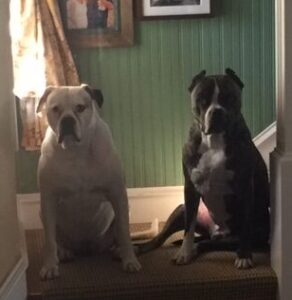
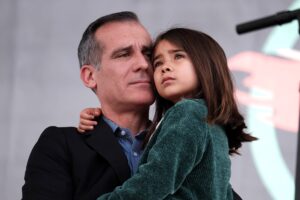
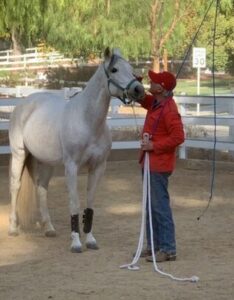
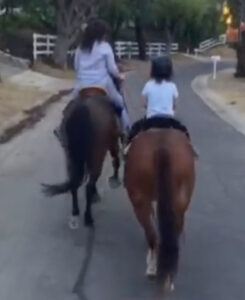
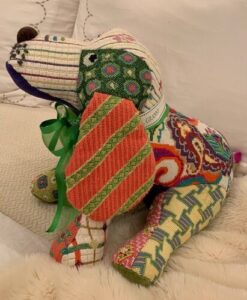
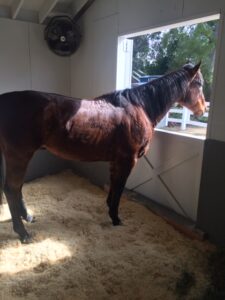
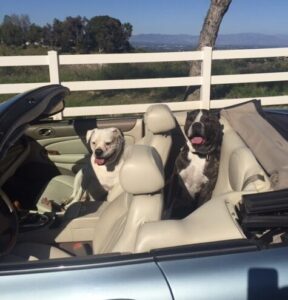
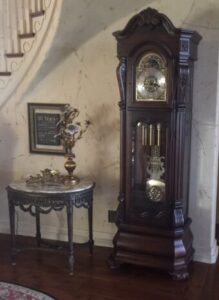 The grandfather clock in the entry hall sounds Westminster chimes followed by six gongs. I roll over and sit up on the edge of the bed in the dark, scratch my head, and yawn. I turn on the light, stumble into the bathroom, and look in the mirror at an old guy.
The grandfather clock in the entry hall sounds Westminster chimes followed by six gongs. I roll over and sit up on the edge of the bed in the dark, scratch my head, and yawn. I turn on the light, stumble into the bathroom, and look in the mirror at an old guy. 
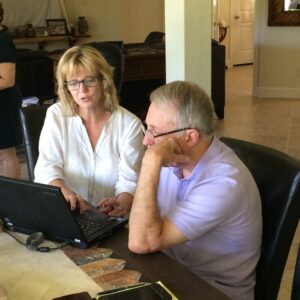
 The original concept was that I would write about the craft of creating a novel, but I soon discovered I don’t have much to offer on that subject. My “process” is maddeningly chaotic. I write a huge volume of unpublishable blather, cull out the few coherent passages, revise them endlessly, and throw away most of the rewrites. When I’m on the verge of jumping off a tall building in frustration, a story sometimes steps out of the fog of confusion and grabs me by the throat and the writing begins to flow. I don’t understand it; I wouldn’t wish it on anyone; and I sure as hell don’t want to write about it.
The original concept was that I would write about the craft of creating a novel, but I soon discovered I don’t have much to offer on that subject. My “process” is maddeningly chaotic. I write a huge volume of unpublishable blather, cull out the few coherent passages, revise them endlessly, and throw away most of the rewrites. When I’m on the verge of jumping off a tall building in frustration, a story sometimes steps out of the fog of confusion and grabs me by the throat and the writing begins to flow. I don’t understand it; I wouldn’t wish it on anyone; and I sure as hell don’t want to write about it.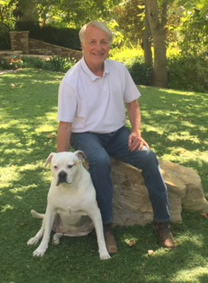 Meanwhile, Bobbye made it easy to publish my stories. She set up my website in its current form and maintains it. She rides herd on the weird dudes in London, who fight off the Russian bots, spam jockeys, and ubiquitous hackers determined to saddle my posts with links to porn, payday loans, bitcoin traders, Viagra vendors, phony casinos, a young woman named Kristina who’s searching for a sugar daddy, and a host of other scam artists. She proofreads the Word document I send her every month for typos and content, synthesizes it with photos, and creates the presentation you find on my website’s blog page. She prepares the format and promotional pitches for my newsletter, maintains its mailing list, distributes it, and forwards all the readers’ comments to me. I’m technologically incompetent, so when I do something that fouls up the entire website, she somehow straightens it out, creating order out of rampant chaos.
Meanwhile, Bobbye made it easy to publish my stories. She set up my website in its current form and maintains it. She rides herd on the weird dudes in London, who fight off the Russian bots, spam jockeys, and ubiquitous hackers determined to saddle my posts with links to porn, payday loans, bitcoin traders, Viagra vendors, phony casinos, a young woman named Kristina who’s searching for a sugar daddy, and a host of other scam artists. She proofreads the Word document I send her every month for typos and content, synthesizes it with photos, and creates the presentation you find on my website’s blog page. She prepares the format and promotional pitches for my newsletter, maintains its mailing list, distributes it, and forwards all the readers’ comments to me. I’m technologically incompetent, so when I do something that fouls up the entire website, she somehow straightens it out, creating order out of rampant chaos.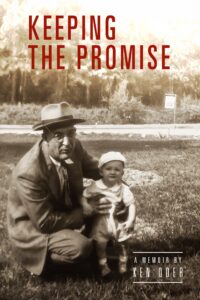 Keeping the Promise is the result of our partnership, a collection of my first fifty blog posts, a series of non-fiction short stories in the nature of an episodic memoir presented out of chronological order and grouped under the headings Milestones, Interesting People I’ve Met Along the Way, Growth From Adversity, Murder Most Foul, Faithful Companions, and On Writing. The book’s title is taken from a post about my grandfather published in May 2020, in the early days of the current pandemic. A short time before he passed away, he asked me to promise him I’d always try hard at everything I did. I made the promise, although I wasn’t sure I would keep it, and I haven’t always lived up to it in the fifty years that followed. These posts recall events on both sides of that ledger. The blog post,
Keeping the Promise is the result of our partnership, a collection of my first fifty blog posts, a series of non-fiction short stories in the nature of an episodic memoir presented out of chronological order and grouped under the headings Milestones, Interesting People I’ve Met Along the Way, Growth From Adversity, Murder Most Foul, Faithful Companions, and On Writing. The book’s title is taken from a post about my grandfather published in May 2020, in the early days of the current pandemic. A short time before he passed away, he asked me to promise him I’d always try hard at everything I did. I made the promise, although I wasn’t sure I would keep it, and I haven’t always lived up to it in the fifty years that followed. These posts recall events on both sides of that ledger. The blog post,